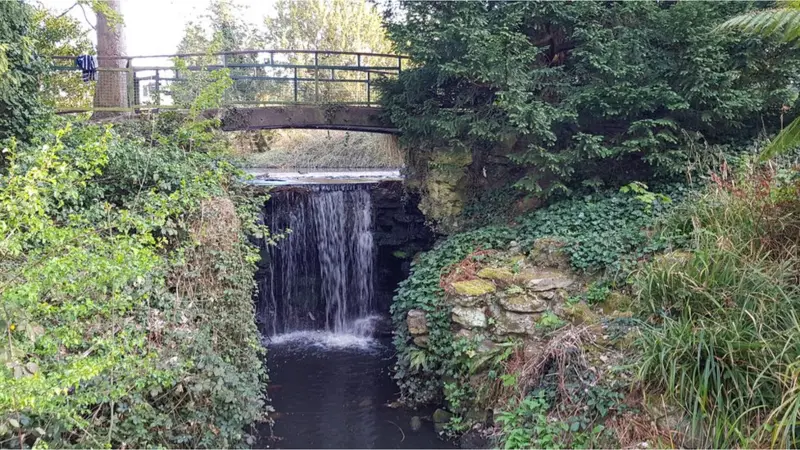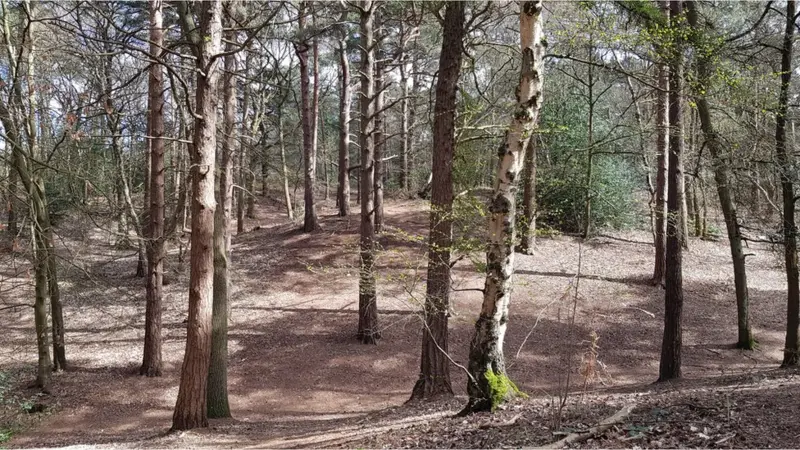
Park green spaces are good for the mind and body.
If you could do just one thing to improve your physical and mental health and boost your immunity, what would it be?
BBC science presenter Dr Michael Mosley said in his podcast Just One Thing that just 2 hours a week in nature and green spaces can make you healthier. Health benefits, and this “positive energy” lasts long: you can still feel it a month later.
More and more studies have confirmed the importance of nature and green spaces to people’s physical and mental health. Being close to nature can not only reduce stress, but also improve immunity.
However, more than 80% of people today live in cities, and the epidemic has made many people stay home. However, this also highlights the importance of green space to health.
Green spaces can have a calming effect on the body’s immune system.
Everyone knows that an environment with green grass, birds singing and the fragrance of flowers is pleasant both physically and mentally.
Japan has an ancient traditional forest bathing (forest bathing). In recent years, similar activities have become increasingly popular in the West, such as tree-hugging or hugging a tree.
Hugging a tree can increase your body’s levels of the hormone oxytocin. Oxytocin, a hormone that can strengthen the bond between mother and baby, is also known as the “love hormone” because it is secreted when people are in a happy mood. At the same time, the serotonin and dopamine hormones in the body when hugging a tree will also increase people’s happiness.
But research also shows that spending time in forest green areas can also increase the number of “natural killer cells” in the immune system.
Natural killer cells are important immune cells in the body. This innate immune effector cell can participate in anti-tumor, anti-viral infection and immune regulation.
The good news is that just a few hours in green space seems to have an effect.
Professor Ming Kuo of the University of Illinois at Chicago, who specializes in studying the impact of urban landscape on human health, explained in an interview with BBC Dr. Mosley how green space affects the human immune system from two aspects.
“Sedation”

Green spaces are soothing.
Professor Guo explained that, first of all, green space can have a calming effect on the human immune system.
Professor Guo said that human immunity has a pro-inflammatory cytokine system, which is equivalent to the body’s early warning mechanism.
When it is overly excited, it may cause panic, as if facing a powerful enemy. As a result, the immune system initiates an over-defense known as a cytokine storm. Cytokine storms may even lead to death.
She said we need to regulate our body’s early warning system so that it doesn’t panic easily.
“Reinforcing effect”

The gurgling stream water is rich in negative ions, which is beneficial to the human body.
Secondly, green space can also strengthen the anti-viral ability of the human immune system. It can adjust the immune system’s combat equipment so that it is ready for battle at any time.
Professor Guo said that just three days spent in nature will have a “huge and long-lasting” impact on the body’s anti-viral ability, and can improve the number and activity of natural killer cells.
Whether it’s a park, a beach, a mountain or a forest, people can benefit. Professor Guo said people can get different benefits from different environments, and even tree-lined residential areas have benefits.
If in direct contact with soil in nature, a type of mycobacterium in the soil (mycobacterium vaccae) can change our serotonin status, help block stress and inflammation, and help improve Anxiety and depression.
In addition, there are more negative air ions in mountains, forests and running water, and the phytoncide released from plants can increase the number and activity of the body’s natural killer cells, thereby improving Health and protection against disease.
Mental Health

Spending more than 2 hours a week in nature is key.
According to Professor Guo, the greener the living environment, the lower the proportion of people suffering from anxiety and depression. According to US research, areas with more green space have fewer COVID-19 cases.
In this regard, Professor Guo explained that green space can increase the number of natural killer cells in the human immune system. One of the functions of natural killer cells is to fight viruses, and COVID-19 is a virus.
In addition, it can also reduce pro-inflammatory cytokines in the body. If the level of inflammation in the body is low, it is less likely to experience a cytokine storm when infected with the new coronavirus.
Professor Guo said that this is like saying that nature makes you “further away from death.”
120 minutes is key

Phytonol released from trees and plants can increase the number and activity of the body’s natural killer cells, thereby promoting human health and resisting disease.
A trial conducted by the Universities of Edinburgh and Exeter (also known as the University of Exeter) shows that 120 minutes a week in nature is a key value to achieve significant health benefits.
The researchers used two groups of volunteers (15 adults in each group), one group was exposed to nature for less than 2 hours a week, and the other group was exposed to nature for more than 2 hours a week, and then tested their physiological aspects, including cortisol levels, Heart rate changes and aspects of mental health, including effects on stress and mood, were tested.
The most eye-catching and important point of the test results is that the perceived stress level of the group of volunteers who were exposed to nature for more than 120 minutes per week decreased by at least 30%, and the effect was obvious; while the volunteers who were exposed to nature for less than 120 minutes had a significant effect. Stress levels were not significantly reduced.
Mosley said that while further research is needed in this area, it is the first to demonstrate a link between exposure to nature and improved mental health.
In other words, whether it is parks, green spaces, forests, seaside and other green spaces, people can relax and reduce stress, but it takes more than 2 hours a week to get close to nature to have obvious effects.
You don’t even need to do anything, just stroll there, relax, smell the fragrance of nature, listen to the gurgling streams and the singing of birds.
